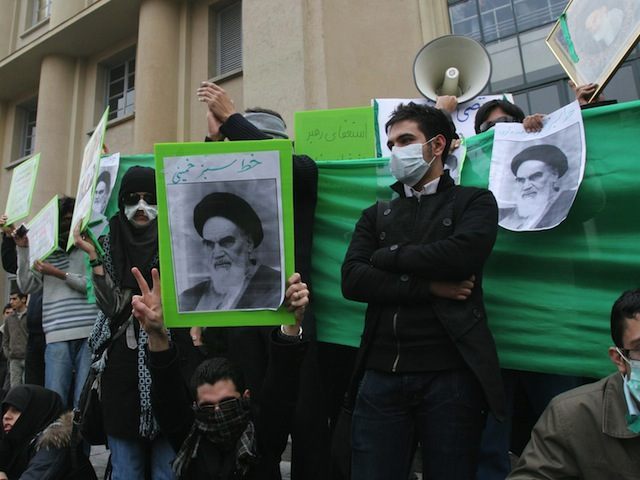Last February’s Super Bowl between the New England Patriots and Seattle Seahawks proved a thriller. Behind 28-24 with 26 seconds left, the Seahawks had a first down on the Patriots one-yard line. With one of the best running backs in the league, the Seahawks were expected to run. Surprisingly, Seattle’s coach called for a pass play over the middle; the ball was intercepted and the Seahawks lost.
Undoubtedly, Seattle’s coach has since reflected on what he would do if only given the chance to do it again. It is an all-too-familiar reflection we experience after having made a bad decision. But, had a penalty against the Patriots occurred on the original play and Seattle got the ball back, calling a pass play again with the same result would have been extraordinarily stupid, bringing the competency of the Seattle coach into question.
In 2009, President Obama made a bad foreign policy decision concerning Iran. After six years in office, he has a second chance to make up for it. While rookie presidents make rookie mistakes, repeating them as a veteran raises a competency issue.
In June 2009, Iran held a presidential election in which incumbent Mahmoud Ahmadinejad ran against three challengers. Polls reflected that one of the challengers, Mir-Hossein Mousavi, was the sure winner due to the incumbent’s unpopularity. But Iran’s Supreme Leader, among voting irregularities, suddenly announced Ahmadinejad had won with 62% of the vote. The Iranian people quickly recognized the election had been stolen from them and took to the streets.
The groundswell of domestic support for the demonstrators was tremendous—not only among politicians and other senior clerics but even among former leaders of the dreaded defenders of the Islamic Revolution—the Iranian Republican Guard Corps—as well as the paramilitary voluntary militia the Basij.
Millions of Iranians participated in the protests. Conditions there were ideal for the leader of the Free World to shine a light into the dark shadows cast by a brutal Iranian regime abusing its own people. The face that most widely came to be associated with this brutality was that of a beautiful young woman, Neda Agha-Soltan, 26, whose final moments of life were broadcast to the world after she had been shot.
Iranians—confident international support would follow—were tragically disappointed. President Obama turned a blind eye to the events in Iran, paying them no more than lip service and giving the mullahs free reign to extinguish the spark of freedom their people ignited. He did this believing non-interference would entice Iranian leaders into embracing a nuclear deal.
On May 8, 2015, despite efforts by the mullahs to hide it from the world, the largest anti-government riots since 2009 broke out in Mahabad—a predominantly Kurdish city in the Iranian province of Western Azerbaijan. Again, another beautiful young life was ended—that of Farinaz Khosrawani, 25. The Kurdish woman plunged to her death from the fourth floor of a hotel where she worked to escape an Iranian official attempting to rape her.
Rioters burned the hotel down in protest. Demonstrations spread to nearby Sardasht, another Kurdish majority city. The mullahs are employing the same brutal tactics of 2009 to suppress these rioters today.
While some of their activist leaders have “disappeared,” the Iranian Kurds seem inspired. A Kurdish spiritual “revival” may be in the works, stemming from the victory Kurds in Syria achieved in January in successfully defending the city of Kobane against ISIS during a five-month siege.
The mullahs, fearing demonstrations may spread to other Kurdish-majority towns have sent security forces in to clamp down.
True to form, President Obama has yet to make any mention of Iran’s unrest. He still remains in search of that same nuclear deal and, with four weeks left to finalize it, fears upsetting the apple cart by turning the spotlight onto Kurdish civil disturbances. Not even a report international inspectors recently discovered Iran’s nuclear fuel stockpile has increased 20% during the past 18 months—contrary to the Administration’s assertions Tehran had frozen its nuclear program—will dissuade Obama from an agreement he feels he, and not America, needs to secure his legacy.
Sadly, it appears once more the Iranian people are left alone to suffer a brutal mullah backlash as the leader of the Free World, who should be ringing freedom’s bell in their support, once again demonstrates his incompetence.
Lt. Colonel James G. Zumwalt, USMC (Ret.), is a retired Marine infantry officer who served in the Vietnam war, the U.S. invasion of Panama and the first Gulf war. He is the author of “Bare Feet, Iron Will–Stories from the Other Side of Vietnam’s Battlefields,” “Living the Juche Lie: North Korea’s Kim Dynasty” and “Doomsday: Iran–The Clock is Ticking.” He frequently writes on foreign policy and defense issues.

COMMENTS
Please let us know if you're having issues with commenting.